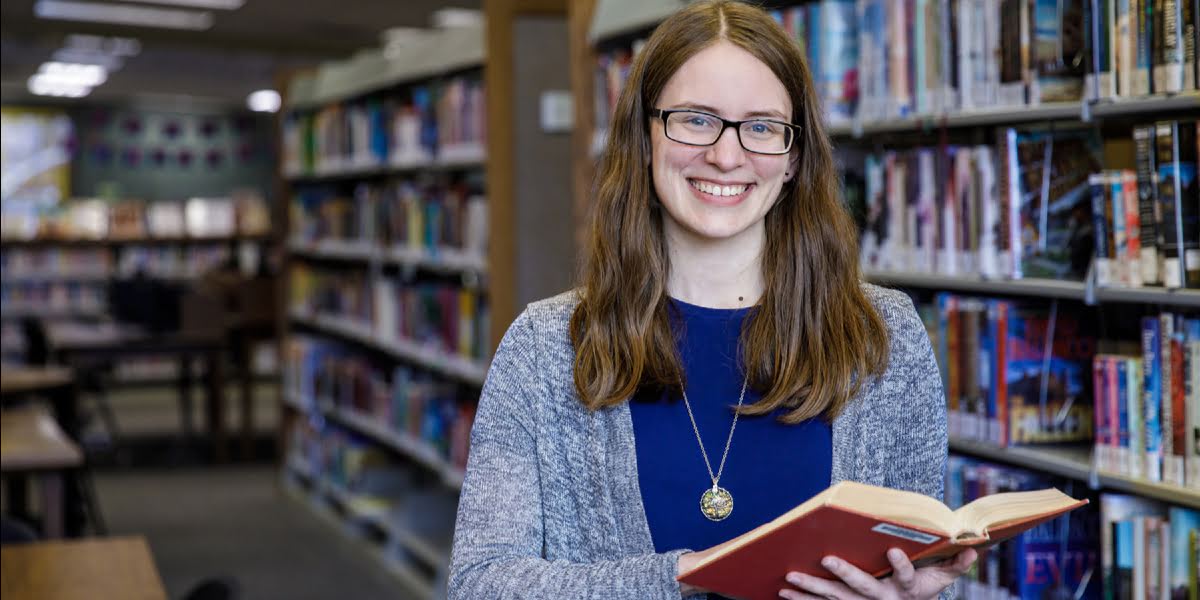History liaison
Abby is working for the Orange City Public Library while pursuing a graduate degree in history. As an Honors student at Northwestern, she loved the program’s interdisciplinary emphasis. The world, she says, isn’t split into departments like a school, and meaningful work blends a variety of academic areas and specialties. While open to a variety of possible careers, she dreams of working for a museum or academic library, helping to make history accessible to the general public.
What led you to major in history?
I began as a history major because I enjoy mythology. I stayed a history major because my first history class at Northwestern was really interesting and intellectually stimulating.
How would you describe Northwestern’s history department?
The value of any department is in the people, so clearly, the greatest strength of the history department is the professors. They know their stuff. They will challenge you to think in new ways and are willing to follow students’ interests in class discussions. Each of them is hilarious in their own way, and they care about their students and want to build relationships with them.
What special opportunities did you have while a student at NWC?
I did a summer internship at the Sanford Museum and Planetarium in Cherokee, Iowa, where I had a variety of responsibilities—from photographing artifacts to designing a small exhibit to giving a “Coffee with the Curators” presentation. Every day I would find something new to be excited about. I also studied abroad at Oxford in a program available to Honors Program students. I learned about Anglo-Saxon England and early modern philosophy and took a cross-cultural British Experience course. It was a very challenging and exciting semester.
Why did you decide to get a graduate degree?
I’d been toying with the idea for a while. My Northwestern professors were encouraging and more than happy to serve as references. They also would have been honest if they had thought it wasn’t the right decision for me. School is a big investment, so you need to consider the decision carefully. The University of Nebraska at Kearney was reasonable in price and had impressive academic requirements for the public history emphasis. I was also excited to see the diversity of their staff and to read about their extensive experience.
What is public history, and why are you interested in that for a career?
Public history is a general term for any historical work intended for a non-academic audience (in other words, for a non-historian). That includes museums, books, history podcasts and documentaries, historic districts, and more. I’m interested in it because it’s fun. I’ve enjoyed public history my whole life, and being behind-the-scenes is even better. I’m also interested in public history because, through my studies at Northwestern, I learned there is so much that historians talk about that is important for the public to know—but too often, that information is inaccessible to them. It’s tricky to play the middle-woman, but I think it’s an important job.

